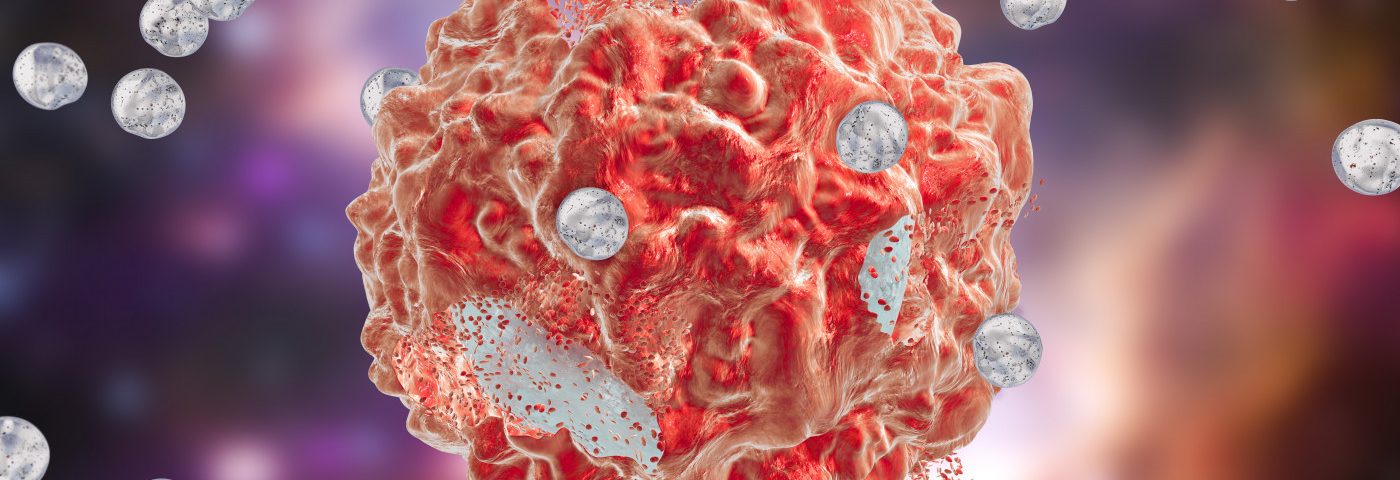All ovarian cancer patients treated in the Phase 1b OVATION trial benefited from the combination of Celsion‘s GEN-1 with standard of care.
The trial enrolled advanced ovarian cancer patients who never had been treated. Among them, 100 percent had at least stable disease, and 86 percent saw a reduction or complete elimination of their tumors after receiving GEN-1 plus chemotherapy.
The responses correlated with successful surgical resections, which improved outcomes in the long run. At this point, the time to disease progression or death is 18 months in the trial’s participants, which compares favorably to the 12 months seen in historical control subjects.
These were the latest findings from the trial, which were featured in a poster presentation at the American Association of Cancer Research (AACR)’s special conference “Addressing Critical Questions in Ovarian Cancer Research and Treatment” held in Pittsburgh, Pennsylvania.
The poster, “Immunological changes following intraperitoneal administration of a formulated IL-12 plasmid in combination with neoadjuvant chemotherapy in newly diagnosed advanced ovarian cancer patients,” also showed that intraperitoneal GEN-1, together with chemotherapy, enhanced anti-tumor immune responses in the tumor.
GEN-1 is a nanoparticle that contains the DNA sequence for the pro-inflammatory protein interleukin-12 (IL-12). GEN-1 triggers a sustained production and release of IL-12 at the tumor site, activating immune cells that kill the tumors.
The OVATION study (NCT02480374) was planned to provide safety and effectiveness data of GEN-1, injected directly into the peritoneum, in combination with standard of care chemotherapy — Paraplatin (carboplatin) and Taxol (paclitaxel) — in newly diagnosed advanced ovarian cancer patients.
The study included 14 patients with stage 3-4 ovarian cancer who received escalating doses of GEN-1 (once a week for eight weeks) in combination with chemotherapy, followed by surgery.
The final results from this trial have shown that GEN-1 treatment effectively increases the levels of IL-12 and interferon-gamma (another immune-activating molecule) locally, with minimal systemic effects.
Also, the treatment reduced the levels of immunosuppressive cells in the tumor and increased the amount of cells with the ability to fight the cancer.
“These distinct immunological changes in the local disease environment are likely to translate into clinical benefit and warrant the continued development of our GEN-1 IL-12 immunotherapy as a potential adjuvant, in both first and second-line ovarian cancer,” Kunle Odunsi, MD, deputy director, chair of gynecologic oncology and center for immunotherapy executive director at Roswell Park Cancer Institute, said in a press release. “Furthermore, pro-immune changes in the tumor microenvironment appear to support research combining GEN-1 with other exciting immuno-oncology therapies including adaptive T-cell and check point inhibitors.”
Concerning treatment effectiveness, the researchers reported that after receiving GEN-1 plus chemotherapy, two patients achieved a complete response, 10 had a partial response, and the remaining two patients had their disease stabilized. This translated into a disease control rate of 100 percent and an overall response rate of 86 percent.
All 14 patients had successful resections of their tumors. Those treated with the highest GEN-1 dose had the best surgical outcomes.
Also, all patients had a clinically meaningful reduction of blood CA-125 levels. CA-125 is a protein produced by ovarian cancer cells and is used as a biomarker for active tumors.
Among the eight patients who had received GEN-1 over one year ago, only two patients progressed. For the remaining six patients, the average progression-free survival (PFS) is 18 months, with the longest progression-free patient at 24 months.
Based on the positive results, and the support and recommendations of experts on the field, Celsion anticipates advancing GEN-1 into the next trial phase.

